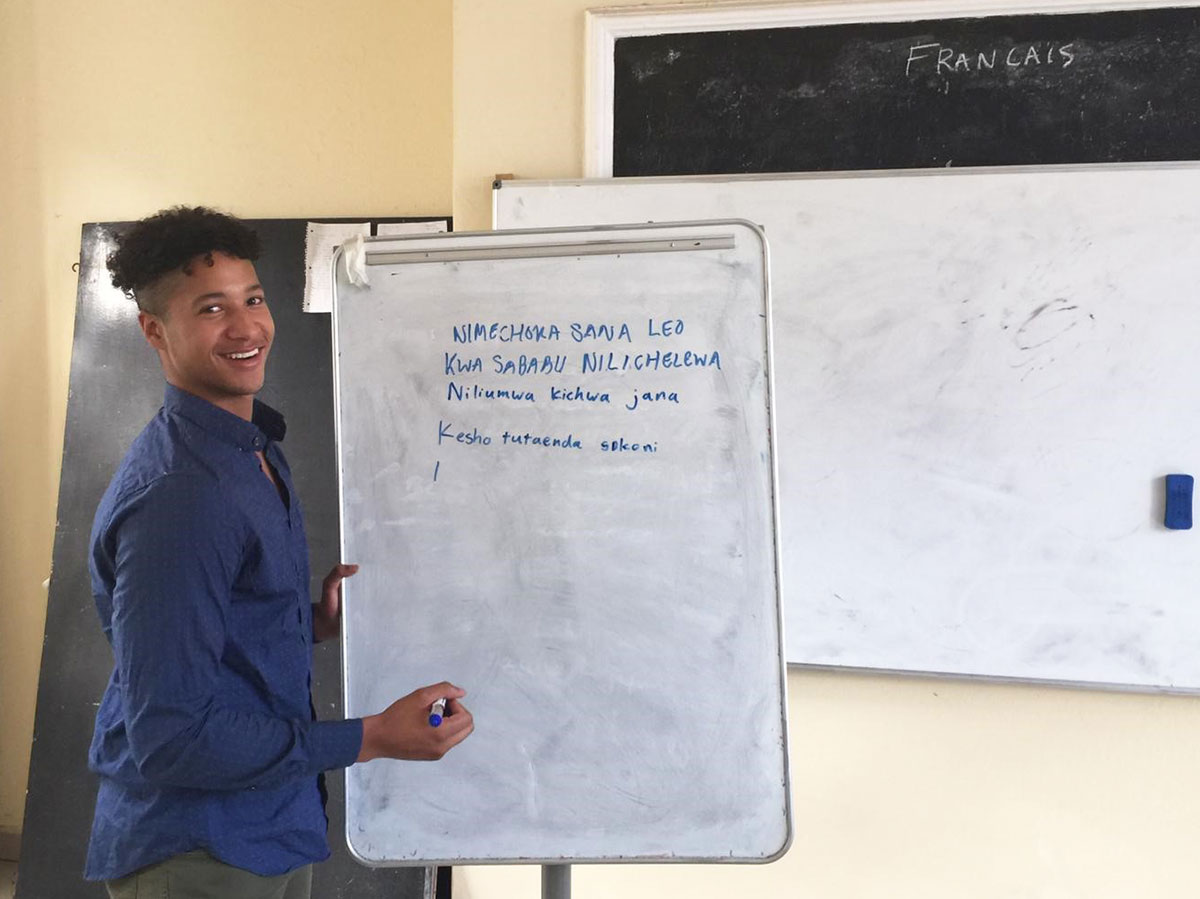
Anthropology major Nyakeh Tuchscherer was the first-ever student from Notre Dame to receive a Summer Language Abroad grant to study Swahili in Tanzania.
When summer comes, Notre Dame students travel around the world — to build their language and cultural skills, undertake independent research, and explore career options — growing intellectually and emotionally along the way.
With funding from a wide range of sources, three Arts and Letters students spent last summer researching racism in Paris, interning at the U.S. Embassy in Benin, and speaking Swahili on the streets of Tanzania.
“My internship would not have been possible without the generosity of the Meruelo Family Center for Career Development and their donors,” said Maggie Miltko, an international economics major who spent the summer working in West Africa.
A meaningful mission
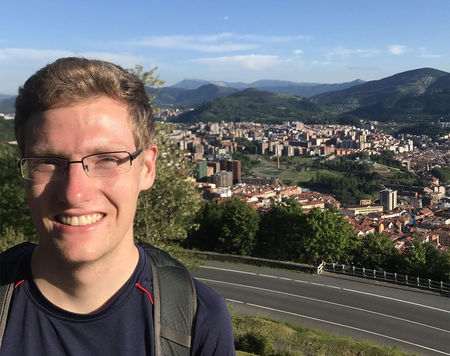
Political science major Ian Salzman received an Undergraduate Research Opportunity Program grant to conduct summer research in France.
During a semester abroad at the Paris Institute of Political Studies, senior Ian Salzman was stunned its racially segregated banlieues, where ethnic diversity seemed more overlooked than embraced. Shocked by how little race is talked about in France, the political science major wanted to start a conversation.
“I was curious about why race isn’t studied in France as it is in the U.S.,” he said. “I wanted to know whether a movement like Black Lives Matter could be transferable to France, and whether Pan-Africanism, the belief that black people worldwide can be united by a common struggle, is true.”
Funded by the Undergraduate Research Opportunity Program through the College’s Institute for Scholarship in the Liberal Arts, Salzman was able to take on a personally meaningful mission and spent his summer exploring these questions.
During his monthlong investigation, Salzman attended Black Paris tours, read a 1956 conference transcript by black artists and writers in the public library, and interviewed French professors and Ph.D. students studying race.
“I grew a lot personally,” said Salzman, who is originally from Omaha, Nebraska. “Now, I think about individual identity in a completely different way on a daily level.”
On campus, Salzman, who has a minor in Catholic social tradition, is continuing the conversation by completing a capstone project on race and faith, exploring Catholicism and the problem of international racism.
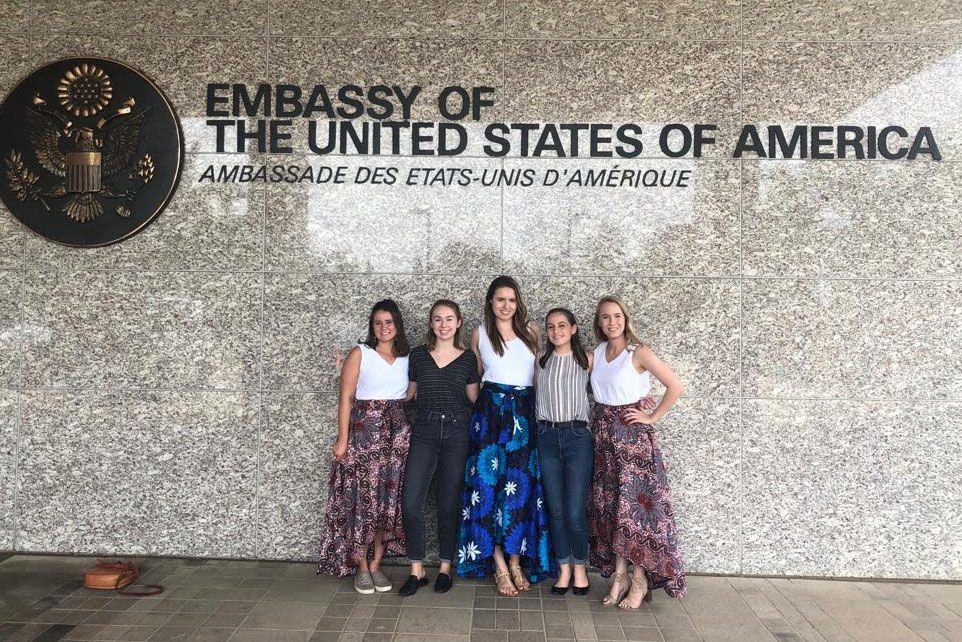
With funding from the Center for Career Development, international economics major Maggie Miltko (second from right) interned at the U.S. Embassy in Benin.
A clearer path
Senior Maggie Miltko had wanted to work in a U.S embassy abroad since her sophomore year, when she interned with a U.S. senator in Washington, D.C.
That dream came true last summer.
Miltko, whose international economics concentration is French, spent eight weeks at the U.S. Embassy in Cotonou, Benin. There, she coordinated ambassador meetings, reviewed grant applications, and explored new ways of empowering local women. She even hosted “TED Talks” for Beninese university students.
By far, her favorite task was accompanying the U.S. Coast Guard to a port to help devise a new security plan to improve trade with the U.S.
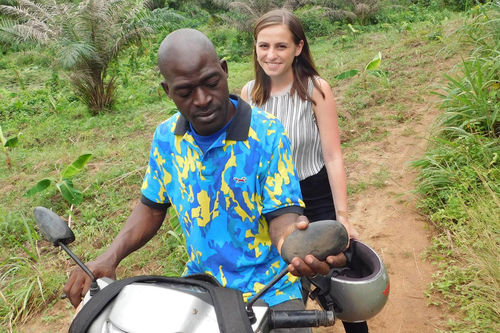
Miltko on a motorbike during site visit to a community project funded by the U.S. Embassy in Benin.
“Ports are so important — they relate to everything, from transportation to commerce and politics,” said Miltko, who also has a minor in international peace studies. “I was so excited to go.”
Miltko, whose living and travel expenses for both of her internships were supported by grants offered by the Center for Career Development, said the unpaid internship helped her discern what she’d like to do after graduation. Before traveling to Benin, she was considering many options for her future, from law school to service programs to working for nongovernmental organizations.
Her path is now clearer.
“After talking to officers in Benin, I became more interested in a program like Princeton in Africa and in international development,” said Miltko, who also studied abroad in Angers, France, for both semesters of her junior year. “All the things I knew about but could never picture about working for a U.S. agency abroad took shape this summer — whether that was the challenge of leaving family behind or the difficulties of living in a foreign country.”
A memorable experience
Junior anthropology major Nyakeh Tuchscherer spent his summer learning Swahili in Zanzibar, Tanzania — the first-ever student from Notre Dame to do so — and found inspiration for his senior thesis project.
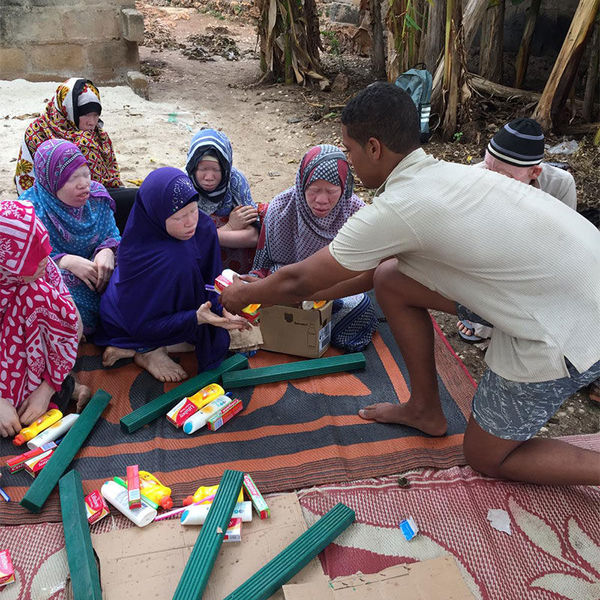
During his Summer Language Abroad trip to Tanzania, Tuchscherer found inspiration for his senior thesis project — the struggles faced by albinos, who can't stay out in the sun but must find ways to make money.
Tuchscherer attended language classes at the State University of Zanzibar, visited Stone Town — the older part of Zanzibar city, and toured spice farms where he encountered parts of nature he had never seen before, from acacia trees to red colobus monkeys.
“I learned as much Swahili on the streets as I did in the classroom,” said Tuchscherer, who was funded by the Summer Language Abroad program through the Center for the Study of the Language and Cultures.
In and out of class, he was surrounded by the language.
“The beautiful part about Zanzibar is that while not many people speak English, they are all well-educated and all spoke Arabic, as well as Swahili,” he said.
Over homemade meals his host mother made, Tuchscherer picked up slang words and idioms from his host brother, who has plans to visit him in the U.S. very soon.
Sailing to the island of Tumbatu, he met with two albino families and witnessed the challenges they must overcome in order to stay afloat in an agricultural society. Unable to stay out in the sun due to a melanin deficiency, they raised chickens, conducted breeding work, and took on night jobs.
Back on campus, Tuchscherer is now working on a senior thesis on survival tactics for albinos, with his adviser Eric Haanstad, director of undergraduate studies in the Department of Anthropology.
His summer abroad was one of the best experiences of his life, he said.
“I still think about it all the time,” Tuchscherer said. “I wish I were back with my host family, enjoying Mama Adilla’s Tanzanian cuisine, and doing more research now that I have more connections there.”


